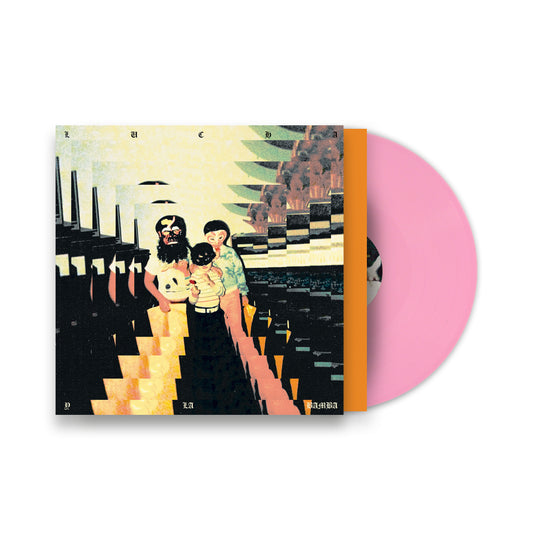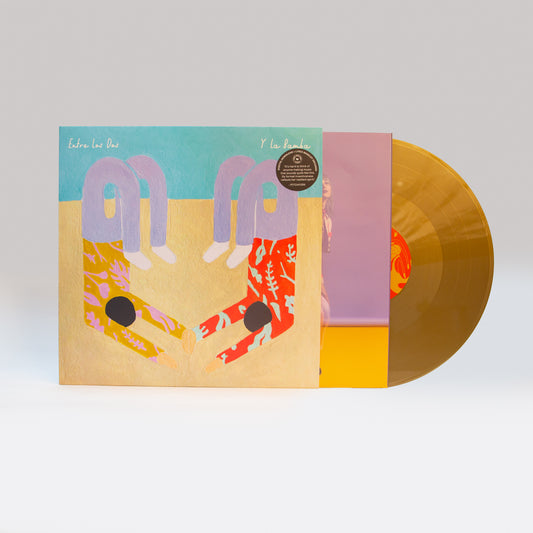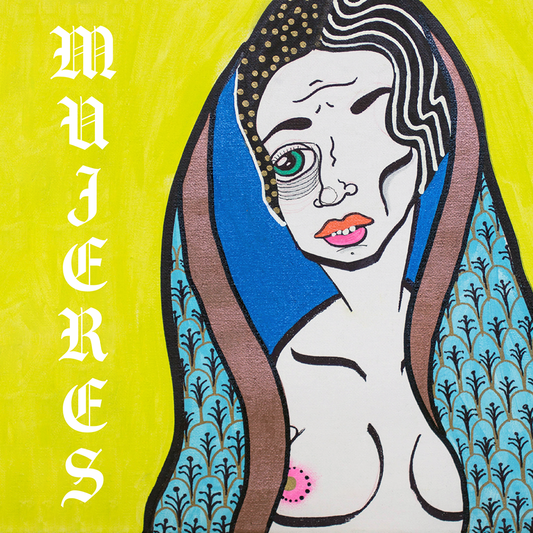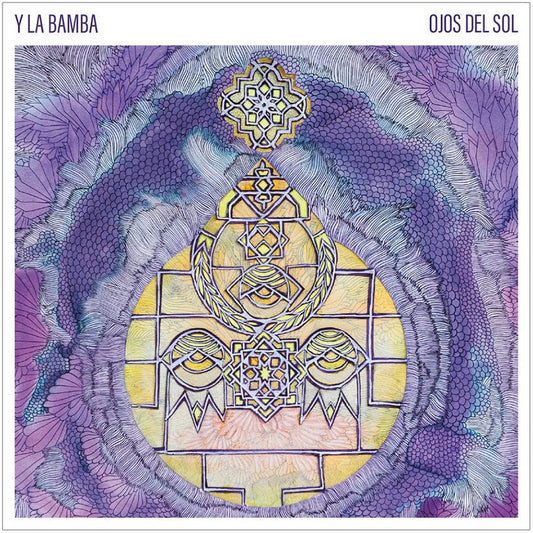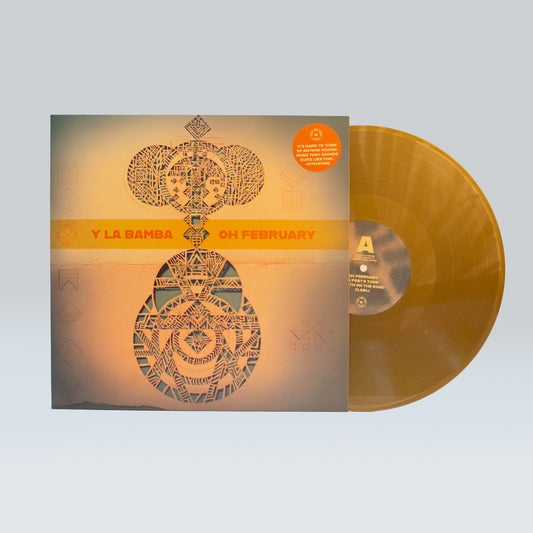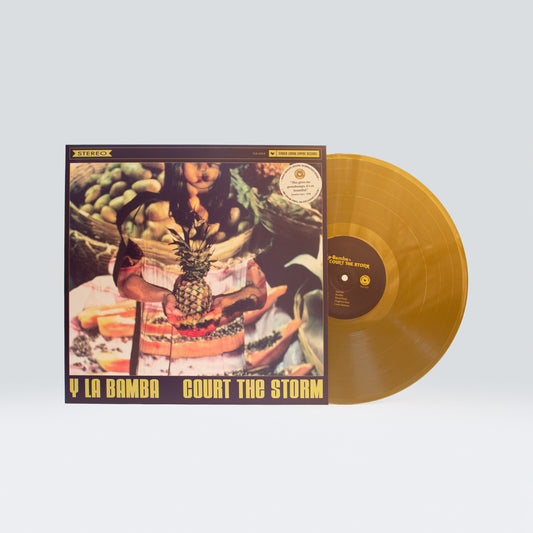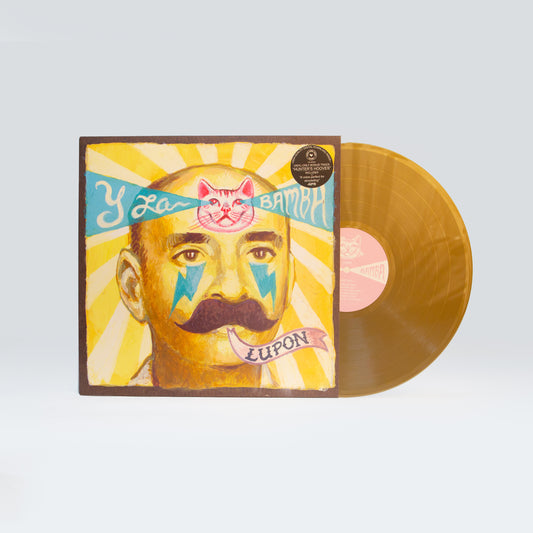To declare one thematic narrative from Lucha, Y La Bamba's seventh album, would be to chisel away a story within a story within a story into the illusion of something singular.
“Lucha is a symbol of how hard it is for me to tackle healing, live life, and be present,” Luz Elena Mendoza Ramos, lead vocalist and producer of Y La Bamba, says of the title behind the album which translates from Spanish to English as...
To declare one thematic narrative from Lucha, Y La Bamba's seventh album, would be to chisel away a story within a story within a story into the illusion of something singular.
“Lucha is a symbol of how hard it is for me to tackle healing, live life, and be present,” Luz Elena Mendoza Ramos, lead vocalist and producer of Y La Bamba, says of the title behind the album which translates from Spanish to English as ‘fight’ and is also a nickname for Luz, which means light. The album explores multiplicity—love, queerness,
Mexican American and Chicanx identity, family, intimacy, yearning, loneliness—and chronicles a period of struggle and growth for Mendoza Ramos as a person and artist.
Lucha was born out of isolation at the advent of COVID-19 lockdowns, beginning with a cover of Hank Williams’ “I’m So Lonesome I Could Cry,” and following Mendoza Ramos as she moved from Portland, Oregon to Mexico City, returning to her parents’ home country while revisiting a lineage marred by violence and silence, and simultaneously reaching towards deeper relationships with loved ones
and herself. The album reflects “another tier of facing vulnerability,” as Mendoza Ramos explains, and is a battle cry to fight in order to be seen and to be accepted, if not celebrated, in every form—anger and compassion, externally and internally, individually and societally. As much as la lucha is about inner work, fighting is borne from survival stemming from social structures designed to uplift dominant groups at the hands of suffering amongst the marginalized.
While peeling back layers of the past to better understand the present has been integral to this period of growth for Mendoza Ramos, time, trauma, and history can feel like interconnected, abysmal loops and music has remained a trusted space for Mendoza Ramos to process, experiment, and channel her learnings into a creative practice. In this way, Lucha has become cyclical, documenting the parallel trust Mendoza Ramos has built with herself to allow the songs to guide how they should be sung, or even sound.
“I’ve been wanting to let whatever feels natural—with rhythm and musical instruments like congas and
singing—to just let it be, in the way that I'm trying to invoke in myself.” Lucha reflects on, “the continuing process of learning how to exercise my producing skills,” explains Mendoza Ramos. “I have so many words, ideas to work with all the time, and the hardest part for me has been learning to trust my gut. And figuring out how I work best, and with who.”
The result is a collection as sonically sprawling and bold as its subject matter.
Connect
ylabambamusic.com-
Y La Bamba - Lucha
Vendor:TLE MusicMultiple options available
Regular price From $10.00Regular priceUnit price per -
Y La Bamba - Entre Los Dos
Vendor:TLE MusicMultiple options available
Regular price From $7.00Regular priceUnit price per -
Y La Bamba -- Mujeres
Vendor:TLE MusicMultiple options available
Regular price From $8.00Regular priceUnit price per -
Y La Bamba - Ojos Del Sol
Vendor:TLE MusicMultiple options available
Regular price From $8.00Regular priceUnit price per -
Y La Bamba - Oh February
Vendor:TLE MusicMultiple options available
Regular price From $6.00Regular priceUnit price per -
Y La Bamba - Court the Storm
Vendor:TLE MusicMultiple options available
Regular price From $9.00Regular priceUnit price per -
Y La Bamba - Lupon
Vendor:TLE MusicMultiple options available
Regular price From $9.00Regular priceUnit price per



